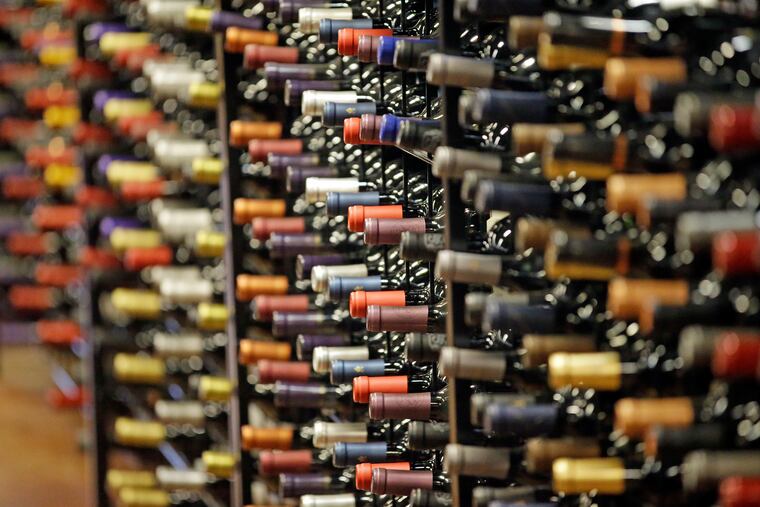You aren’t the only one who’s been drinking more since the pandemic began. Especially if you’re a woman.
Interviewing adults between 30 and 80 in May and June, researchers found that people’s frequency of alcohol consumption had increased by 14% on average since 2019.

Americans over age 30 have been drinking more during the COVID-19 pandemic, a new study funded by the National Institutes of Health has found, raising concern for researchers that stressed adults looking for relief during months of lockdown may be putting themselves at risk for other health concerns.
The study, by researchers at the RAND Corp. and the University of Indiana, was initially conceived as a five-year project looking at how people’s social networks influenced their substance use, said Michael Pollard, a RAND sociologist and the study’s lead author. The first interviews of the 6,000 study participants were conducted in 2019.
Then the pandemic hit, and Pollard and his colleagues found themselves with a unique trove of data that shows how COVID-19 has affected the lives — and drinking habits — of thousands of Americans.
“Initially, we were concerned that our primary interest was how people’s friends affect their drinking — and now the whole landscape of how people interact with their friends has changed. That kind of threw a monkey wrench into the project,” Pollard said. But he said the researchers soon realized that the data they collected in 2019 could provide an important baseline to compare survey respondents’ drinking habits, pre-pandemic.
Their findings were alarming, he said.
Interviewing adults ages 30 to 80 in May and June, researchers found that people’s frequency of alcohol consumption had increased by 14% on average since 2019. Three out of four people in the study who had been drinking five days a month before were now drinking one more day a month.
Women saw a 41% increase, on average, in binge drinking, defined as four or more drinks in a few hours. One in five women in the study was binge drinking one more day per month than in 2019, Pollard said.
Women also reported an increase in negative consequences from drinking, including “taking foolish risks,” “failing to do what was expected of them,” and hurting their family with their drinking.
“For a lot of these behaviors, like binge drinking, when you talk about how one in five women added a binge drinking day on average, that means most women still aren’t binge drinking,” Pollard said. “But the women who are binge drinking have to drink quite a bit more heavily to pull up the average.”
Drinking to get through the stress of lockdown has been an enduring theme of the pandemic. Alcohol sales (outside of bars) soared around the country. (In Pennsylvania, liquor stores closed during the early days of the pandemic, and saw a drop in income from sales, but still managed to hit a record-high net income by the end of the fiscal year.)
“Alcohol is viewed very differently from other substances, even smoking, even though it does have all these negative health effects,” Pollard said. “There are all these sort of jokes about increasing your drinking during COVID.”
But considering the health problems that can result from heavy drinking, Pollard said, the study shows that individuals and health systems should be more aware of the risks of drinking during the pandemic.
Besides the risk of chronic health conditions, injuries, and interpersonal violence, people are more likely to smoke when they drink, said Pollard. Studies have shown smokers are at an increased risk of contracting COVID-19 and developing serious symptoms.
» READ MORE: Coronavirus poses extra risks for smokers and vapers. Will that make them quit?
“The World Health Organization pointed out that heavy drinking is linked to acute respiratory distress syndrome, which is a real risk factor for contracting COVID,” Pollard added. “These increases in heavy drinking, in particular, have all these downstream outcomes.
“Another concern is that if the pandemic, as we believe, has increased negative mental well-being, alcohol use also contributes to increased depression and anxiety. It could sort of reinforce itself in a vicious circle.”
For people concerned about their drinking habits — or a change in drinking habits during the pandemic — the National Institutes of Health has a symptom list for alcohol use disorder on its website. The questionnaire asks participants about their drinking habits in the last year — ranging from whether they’d ended up drinking more or longer than they’d intended to, to continuing to drink despite it hurting family members or job prospects.
The NIH also has an online alcohol treatment navigator tool. In Pennsylvania, the state hotline for help finding drug and alcohol treatment is 800-662-4357 (800-662-HELP).